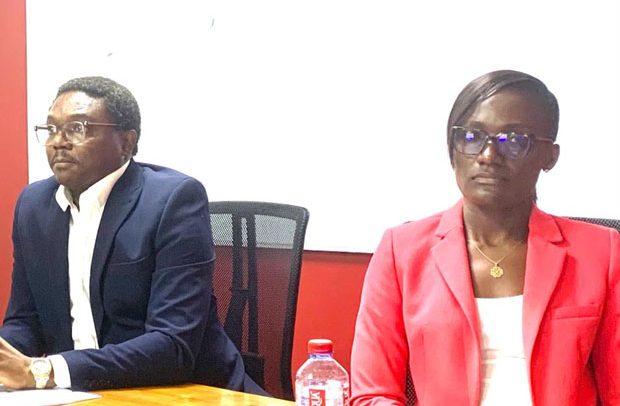Yahaya Yunusa and Enid Kanor
The American Tower Corporation (ATC) global digital infrastructure company with operations in Ghana has reemphasized its commitment to invest significantly to further develop and enhance the country’s wireless infrastructure solutions.
Chief Executive Officer, ATC Ghana, Yahaya Yunusa, at a media engagement said ATC would continue to support the telecom industry to enable its growth in line with the governments’ digital expansion and inclusion agenda.
He said as a company with its core function being the construction of telecom towers for lease to multiple customers to deliver fast world class wireless connectivity service to consumers and businesses, ATC has over 4000 tower sites in Ghana creating 178 direct and 12,716 indirect employment.
Regulated by the National Communications Authority, Mr. Yahaya said the company is committed to sustainability focusing on the environment, social and governance.
“We are committed to minimizing our environmental impact and operating sustainably. Our overall business model of developing and leasing neutral host infrastructure to multiple communications providers, as an alternative to each provider building its own, fundamentally reduces consumption of energy, materials and resources,” he said.
Yahaya Yunusa said the Ghanaian economy benefits from the company through taxes and revenue to the government, direct support to the digitization agenda, training and employment of Ghanaians (workers being 99% citizens), and investment in local vendors and government initiative such as the ‘Girls in ICT initiative’.
Head of legal, Enid Kanor addressing questions from participants on the effect of tower site located within residential areas said there is no proven medical research to back those claims.
Ms Kanor highlighting some challenges bemoaned the high-cost of land to build a tower, high fuel prices as they use the generator to provide backup power to their customers and also the rampant theft of batteries and siphoning of fuels from their generators.
By Jamila Akweley Okertchiri


